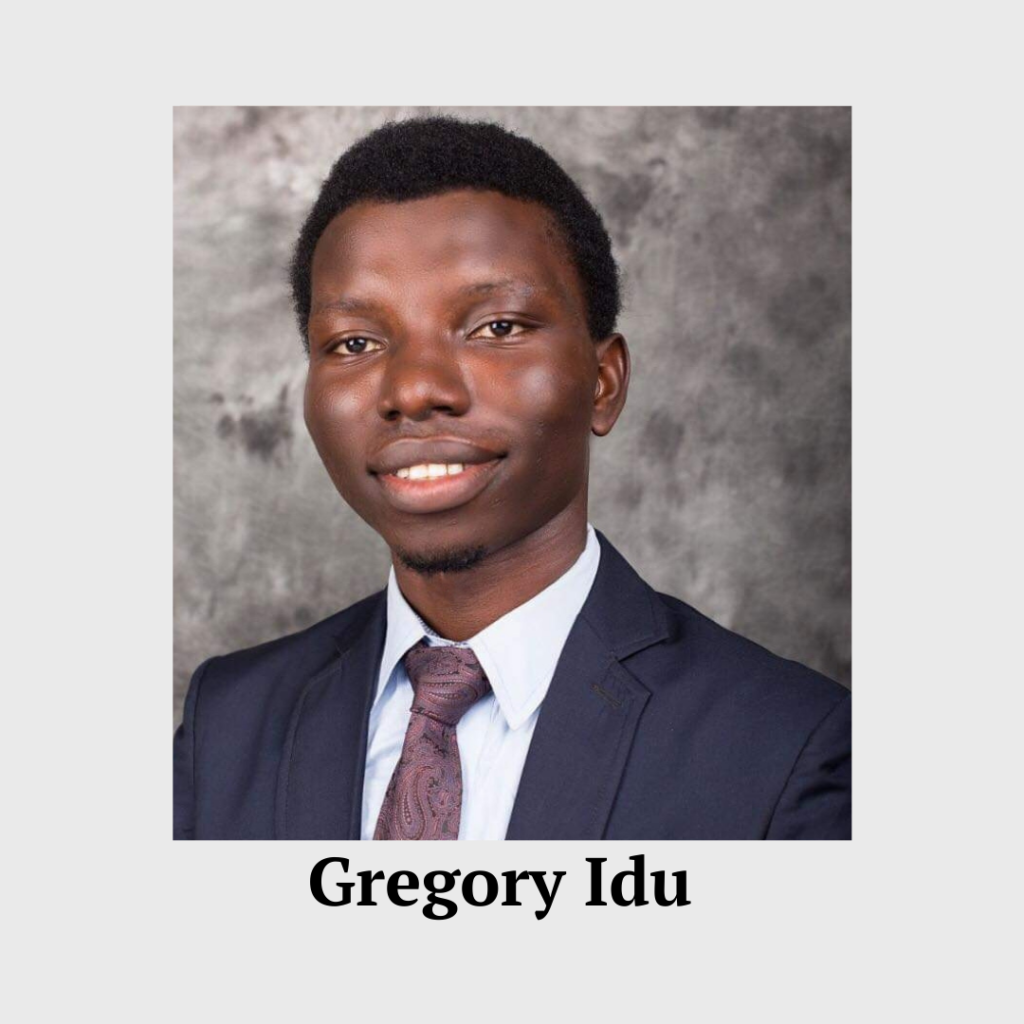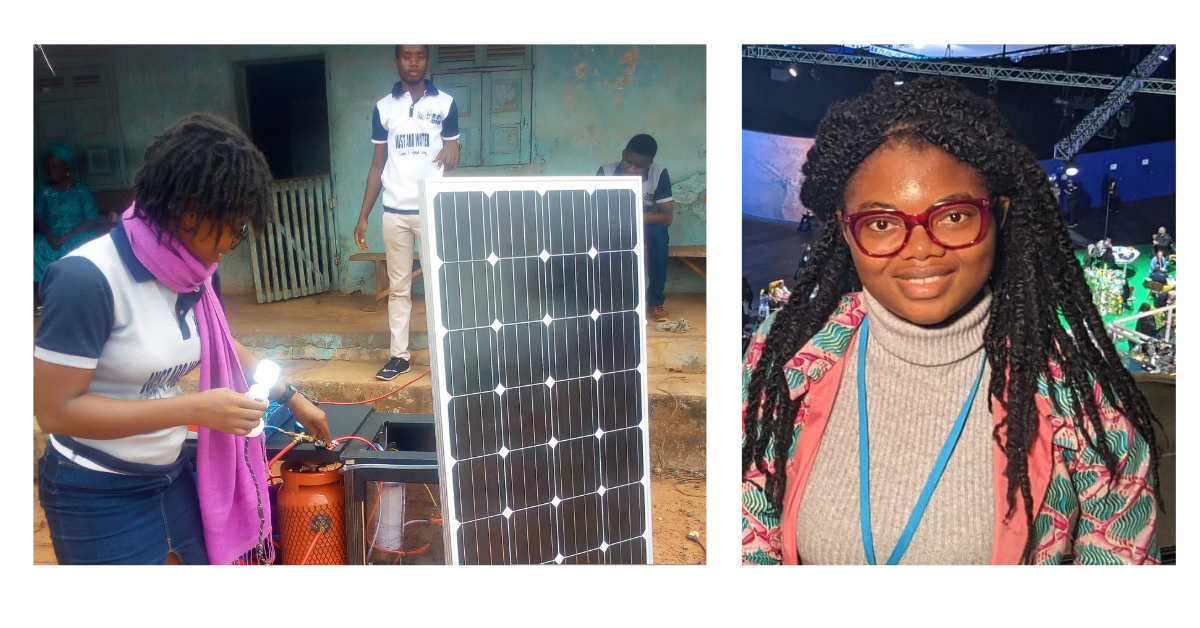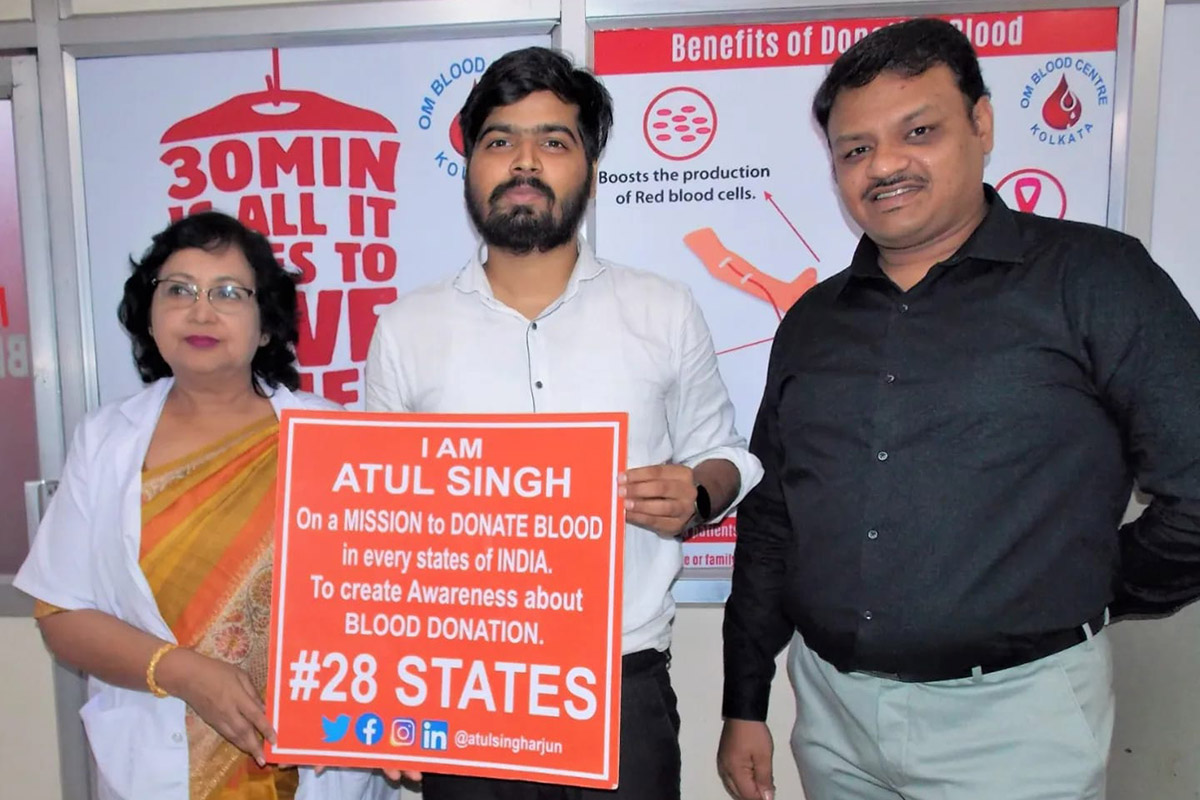Young Nigerian entrepreneur fuelling change through clean energy
April 22nd, 2022
Joy Egbe is one of 20 finalists in the 2022 Commonwealth Youth Awards. As the co-founder of NewDigit, she runs a cleantech start-up providing zero emissions energy to low-income households in Nigeria. The company’s “Just Add Water” device uses electrolysis to produce hydrogen gas from water which is then used for cooking and electricity. Commonwealth Correspondent Gregory Idu from Nigeria spoke with Joy about her initiative.
NewDigit’s ‘Just Add Water’ technology has been provided to 47 households and five small businesses, to date. In addition, the company has trained over 300 young people in solar panel tech and installation. Through her initiatives, Joy is working to help achieve Sustainable Development Goal 7, which has to do with affordable and clean energy.
Tell us about what you do?
I’m a social impact professional with focus on entrepreneurship, innovation and community development. I am a co-founder of NewDigit Technology, a renewable energy organization that provides zero-emission energy products for households and small business owners. We have an innovative and unique technology which uses water to produce cooking gas and solar panels to provide electricity, all to low-income households in Nigeria.
What is your educational background and has it been instrumental in your work?
I studied Information Technology for my undergrad at the University of Benin. I won’t say I’m practicing exactly what I studied, but in school, I was a part of a club where students would come together to research and develop innovative ideas that could solve real-time problems in Nigeria and Africa. I believe this has been very instrumental to what I now do as a professional. In fact, NewDigit is just one of several enterprises I run, and I would say this is possible because of my tech skill set.
How does it feel to be a Commonwealth Youth Finalist and what can you say are the things that contributed to this commendable feat?
Being selected as a finalist is exciting news for me, since it means my work is being acknowledged not just in my home country, but also across the Commonwealth nations. It’s a huge encouragement for me, and a source of inspiration for others who want to do great things but are faced with one limitation or another. I believe my seven years of impact through advocacy and community development is what made me stand out, and I’m happy that my work in renewable energy is being recognized.
What would be your assessment of where the world is in terms of climate action versus where we would like to be?
The issue of climate change is very relative. Every part of the world might be experiencing climate change, but the impact varies across regions. I can say, however, that the world hasn’t made significant progress. Countries of the Global North are already going ‘green’ and are excited about their novel electric cars and such. But in some parts of Africa, providing basic electricity is still a major challenge. If we cannot provide the basic human needs, it is difficult to solve the problem of climate change. That’s the friction we are trying to mitigate as an organization, and this should be a call to action for everyone who feels genuinely concerned about this challenge.
How do you envision Nigeria bringing on board things such as green hydrogen technology and photovoltaic systems in climate action to meet net-zero emissions by the year 2050?
I participated at the United Nations Climate Change Conference (COP26) in Glasgow, last year, and this reminds me of what was discussed at the time. As I said, the impact of climate change varies across the board, and if we’re going to make any progress as a nation, we may not necessarily replicate/import foreign technologies. Our solutions may have to be localized because of the peculiarity of our challenges. From flooding in the South to drought in the North, we must pay critical attention to how we can manage and reduce these consequences.
Who are the stakeholders in this process?
Governments are a major stakeholder, and this is why they should be open to initiatives from people and be willing to incentivize business ideas that have the potential to be scaled. We have the talents spread across the youth population and even our universities, but we lack the resources to thrive, to test and scale our innovative ideas. Laboratories must be well-equipped, as our universities should now become research-based institutions. Our environment must also remain attractive to foreign investors.
You’re a co-founder of NewDigit Technology. Tell us one of the challenges you’ve had to face and how you were able to surmount it?
When we started out with NewDigit, all we wanted to do was to make life easier by providing our zero-emission energy products to customers. It turned out that they loved the idea behind our initiative, but they were afraid of the uncertainties associated with transitioning from their current reality into what we proposed to them. Selling was initially difficult. But I’m beyond happy that we’ve been able to change the narrative to some reasonable extent, as we now have customers using our products at scale. One key strategy here, I would say, is constancy to our purpose.
What is the greatest lesson you’ve learned in life, especially as a social impact professional?
I’ve had a lot of experiences, and each one has a lesson embedded in it. But I would say that I have learned not to be carried away by anything, whether good or not-so-good. My journey in clean energy is linked to a very personal story, and so each time I feel distracted by anything, I remind myself why I’m here.
Do you mind sharing the story with us? Perhaps, someone could be inspired by it.
I started an advocacy programme on climate change while at university in 2015. I had lost a dear one who died as a result of indoor pollution. A lot of people are ignorant of the dangers posed by generator fumes, but the World Health Organization has said that more people die from indoor pollution than from malaria and HIV, every year. My loved one’s death was just one of many cases I had heard of. This made me to go into a deep quest as to how this problem could be solved. It fuelled my advocacy and activism efforts, and now, entrepreneurship towards bringing clean energy solutions to the problem of climate change.
Would you consider others doing similar work to be your competition?
Competition sometimes makes us lose our sense of purpose, the reason why we’ve embarked on the cause. But I think social entrepreneurship is a bit different. The competition is a healthy one – one in which I would rather partner with you than compete with you. The problem that besets us cannot be solved by a single person, so partnership is crucial.
Are there other things you enjoy apart from solving the problem of climate change?
Apart from work, I am a vegetarian, I love travelling and exploring nature.
What advice do you have for aspiring or young changemakers who are discouraged after facing one setback or the other?
My advice will always be to strive to be solution-oriented. If you cannot single-handedly provide a solution, then be a part of other people’s solutions. In the end, make sure you’re solving a problem.
Is there anything else you wish to say?
To governments, people and individuals, I want to say that the climate is changing and it’s not waiting for anyone. We must all strive to keep planet earth a home, even for the unborn generations. Developed countries should now support the less developed with climate adaptation infrastructures.
Photo Credit: Joy Egbe
About the writer: With experience spanning two years in the development sector, Gregory Idu continues to seek to proffer solutions to issues centered on socio-economic inequalities. He was a (2019) delegate of the World Youth Forum in Egypt, a Public Policy fellow of the YALI West Africa Regional Leadership Centre (2020) in Ghana, and an alumnus of the Fund for American Studies, Washington DC (2020).As a banker and a to-be chartered accountant, he is deeply poised to continue to leverage his technical expertise to foster international trade and globalization, and to increase access to funding for business owners whilst also creating saner economic environments for investors within the Nigerian markets.




